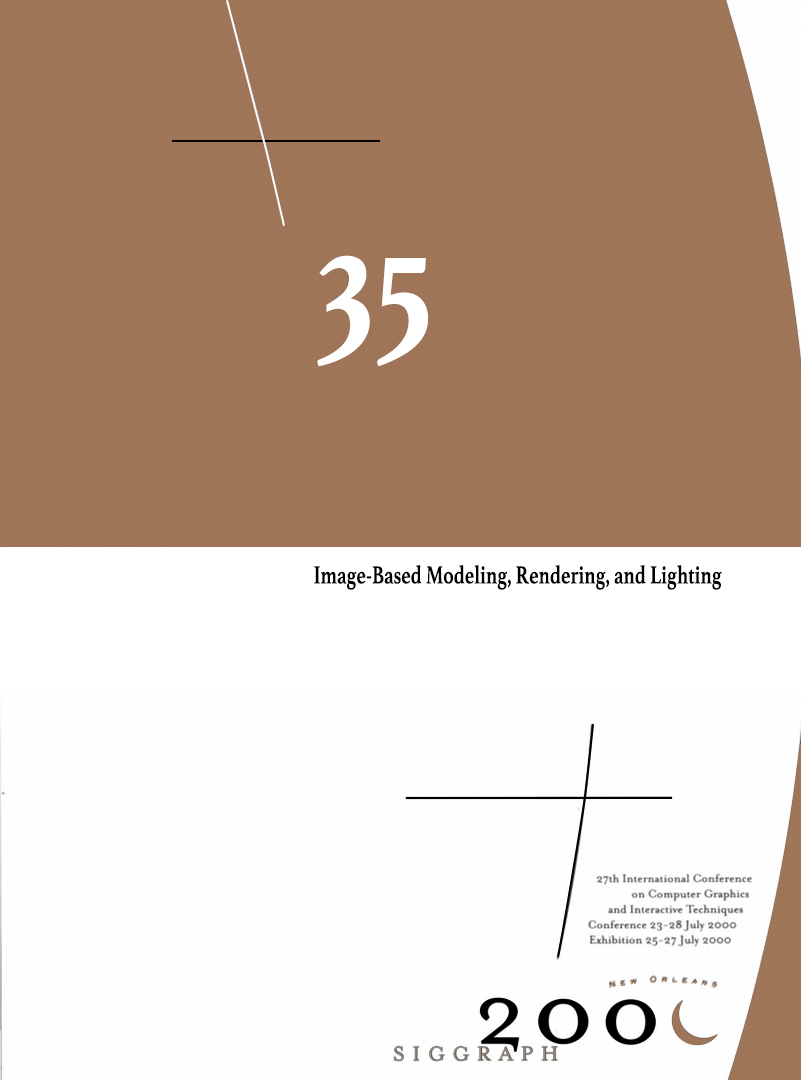“Image-Based Modeling, Rendering, and Lighting” by Debevec, Bregler, Cohen, Szeliski, McMillan, et al. …
Conference:
Type(s):
Title:
- Image-Based Modeling, Rendering, and Lighting
Presenter(s)/Author(s):
Entry Number:
- 35
Abstract:
Prerequisites
Understanding of basic image-processing, especially image resampling. Experience with still photography. Familiarity with global illumination (indirect lighting and non-diffuse reflectance).
Topics
Image-based data structures, rendering methods that use images and/or geometry for novel view synthesis, methods of deriving models suitable for use in traditional graphics applications, the capabilities of the various techniques, and their suitability for specific applications such as virtual environments, architectural visualization, synthetic camera motion, image-based lighting, visual effects, and human-figure animation.
Description
Deriving geometry and appearance from real photographs often delivers shorter modeling times, faster rendering speeds, and unprecedented levels of photorealism. This course explained and demonstrated several techniques for turning images into models and then back into renderings: movie maps, panoramas, image warping, photogrammetry, light fields, and 3D scanning. It reviewed relevant topics in computer vision, shows how these methods relate to image-based rendering techniques, and applies the techniques to animation and 3D navigation. And it explained how various modeling techniques make tradeoffs between navigability, geometric accuracy, manipulability, ease of acquisition, and level of photorealism.





